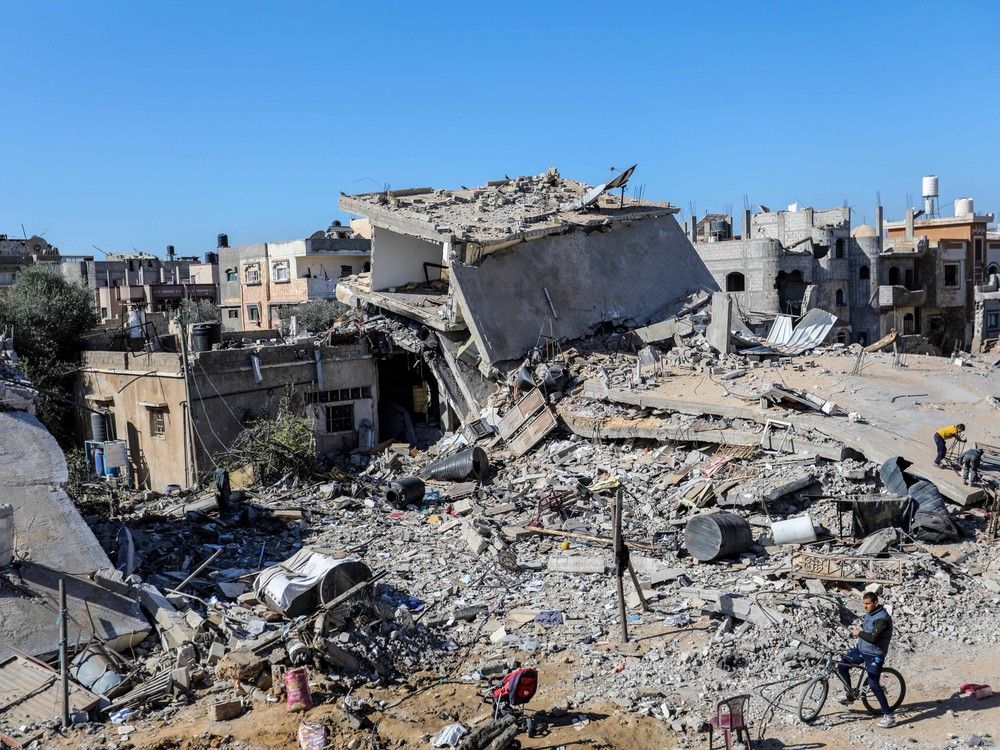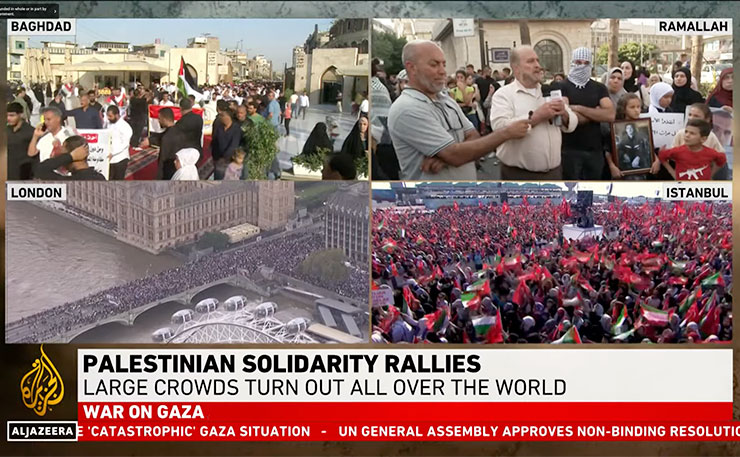





The Israeli-Palestinian conflict continues to escalate, causing tensions and divisions not only in the Middle East but also in regions like the Maghreb and Europe. Recent events between October 7 and November 17 have further intensified the situation. A Hamas-led attack on Israel sparked retaliation, leading to ongoing reactions from both sides and the international community [3c89989e].
The historical context of the conflict is crucial to understanding its complexities. The roots of the conflict, including the role of colonialism, have contributed to the current state of affairs. The dire situation in Gaza, where Palestinian refugees have lived under a military blockade for 16 years, and the Israeli settlements in the West Bank have also contributed to the abandonment of the two-state solution [ee43ab97].
In response to the recent events, protests have taken place in various cities, including Indianapolis. Both pro-Palestinian and pro-Israel demonstrations have occurred, reflecting the diverse perspectives within the community. Speakers at these protests have expressed their views and called for a ceasefire [3c89989e].
The impact of the conflict extends beyond the Middle East. The article highlights the investments made by the state of Indiana in Israel Bonds, indicating the economic ties between the two regions [3c89989e].
The international community's response to the Israeli-Palestinian conflict has been varied. While the US has historically supported Israel, there is an increasing wave of support for Palestinians across the Western world. However, this support has also led to a rise in hate crimes against both Palestinians and Jews. The article calls for caution and emphasizes the importance of humanity and being pro-peace [39ad5271].
The urgent need for an immediate ceasefire is emphasized, as well as the plight of civilians trapped in the northern end of Gaza. The article criticizes the US Secretary of State's call for 'humanitarian pauses' and highlights the injustice faced by Palestinian refugees. It also explores the history of the conflict and suggests that a peaceful resolution can only be achieved through a collaborative process of transformative justice [f8f8ef9b].
The geopolitical implications of the conflict are also highlighted in the article. It mentions the interests of Russia in the region and warns against the potential consequences. The author emphasizes the need to replace ideological justifications for violence with a solid historical understanding and calls for Palestinians to unite and pursue coexistence, while urging Israelis to reject ethno-nationalist politics [ee43ab97].
The recent European Parliament elections have caused significant upheaval in several leading countries, reflecting a growing public shift towards more right-wing positions. Europe needs to reassess its engagement in the Israeli-Palestinian conflict and develop a more effective strategy. European support for Palestinians has not improved their situation, perpetuating poverty and dependency. The EU champions the two-state solution based on the 'land for peace' principle. Middle Eastern instability, particularly the Gaza war, has increased its influence on European security. Europe must prioritize supervised economic support, adopt a firmer stance against terrorist organizations, and promote Western values and mediation. A reevaluation of strategies is imperative to enhance Europe's influence, temper the conflict, and safeguard European national security [18d42568].
The ongoing conflict between Israel and Palestine poses significant challenges to finding a military or diplomatic solution. Both sides have been unwilling to make compromises, making a negotiated settlement difficult. The article explores the role of various countries, including the US, Europe, Russia, China, and the petrostates, and their interests in the region. It also discusses the impact of the conflict on the Middle East and the potential for escalation and destabilization. The article concludes by highlighting the risks of a global conflict and the need for a realistic and coherent approach to resolving the conflict [a36fdd23].
In conclusion, the Israeli-Palestinian conflict remains a pressing issue with far-reaching consequences. Understanding the historical context, local response, and geopolitical implications is crucial in advocating for peace, justice, and equality in the region [3c89989e].